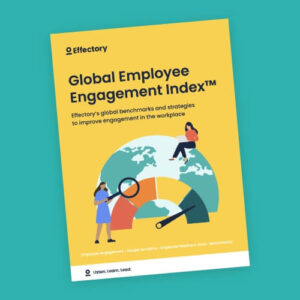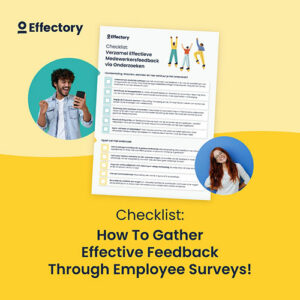New research reveals that CEOs have an invaluable role to play in employees’ engagement. In nearly all of the multinationals that we partner with, employee engagement is a hot topic. Immediate managers are constantly searching for ways to increase it, HR are spearheading engagement specific initiatives and senior management have increasingly become aware of the huge added benefits engaged employees bring.
CEOs and employee engagement: why the two need each other

We regularly see just how important employee engagement is for CEOs and organisations. During our latest research in multinationals however, we decided to investigate the relationship between CEOs and engagement from a different angle. Specifically, we asked: what impact do CEOs have on employees’ engagement?
A CEO’s wish list
High levels of employee engagement continue to be much sought-after by CEOs, and it lies close to the top of most CEOs’ wish list. What’s more, in today’s competitive business environment CEOs need engaged employees. As higher business performance, reduced staff turnover and increased efficiency continue to be linked to engaged employees, no modern CEO can run a competitive business without them.
In order to increase employee engagement levels, many CEOs have invested in engagement initiatives and activities. Whilst the intentions have been good, the success rates have been mixed. The average engagement levels in multinationals currently stands at 33%, with much variation between industries. Clearly whilst some initiatives have been successful, a great deal have not.
Engaging employees in multinationals
Global Employee Engagement Index™
Discover the Global Employee Engagement Index™ 2025 for key insights on driving employee engagement, improving performance, and enhancing team dynamics.
DownloadCEO role in employee engagement
When employees have confidence in the board, they are nine times more likely to be engaged in their work and committed to the organisation.
During our study we aimed to quantify the impact that C-level and CEOs have on employees’ engagement. Fortunately we were able to achieve this and the result is remarkable; board of Directors (including CEOs) account for a ninefold difference in employee engagement and commitment.
Unfortunately, many CEOs are too focused on the financials and high level strategy, and in the process overlook contact with employees at the ground level. The consequence of this is that too few employees trust and have confidence in senior management. Further, this also means that the well-intended initiatives may be going to waste if CEOs and senior management fail to inspire confidence in employees.
The top 4 drivers of employee engagement and commitment
How CEO’s can engage with employees
As established, employees trusting the board and CEOs has a huge impact on employee engagement. Outstanding CEOs make a huge difference to employees and their engagement. The key for CEOs lies in inspiring trust in employees. Our research shows that CEOs who inspire huge trust in employees share three traits:
- Listening to employees
- Clearly communicate the organisational vision and goals
- Connect with employees
The added benefit of inspiring trust in employees is not only higher levels of engagement, but employees will also trust that they will be treated fairly. As such, employees’ energy goes into work instead of doubting their relationship with the company.
Why CEOs would be wise to listen to employees
How to gather feedback from your employees
The definitive checklist for creating your employee engagement survey.
DownloadThe positives of listening to employees
One of the most inspiring stories of senior management and CEOs listening to employees and communicating the organisation’s goals comes from an energy company we partnered with.
The organisation originally aimed to provide a service for home comfort, and to provide general maintenance. Whilst the service was necessary, employees weren’t compelled by it. One day, inspiration struck from the Al Gore film, An Inconvenient Truth. After watching the film with all of their technicians, senior management were persuaded to reset the organisational goal. Compelled by Al Gore, the organisation’s goal was changed from offering basic maintenance and repair to helping their customers reduce their environmental impact.
All of the service maintenance for boilers and heating systems were altered to provide affordable, energy-efficient and sustainable solutions. The technicians adapted their services to provide a small scale, neighbourhood approach and educated clients on energy use and potential savings.
The impact of resetting the goals together was staggering. Employees’ engagement and commitment soared to 94%, and the organisation’s profits tripled.
How HR can lead business success
HR and employee listening are crucial to business success. Here is how employee insights can help your organization.
Download

